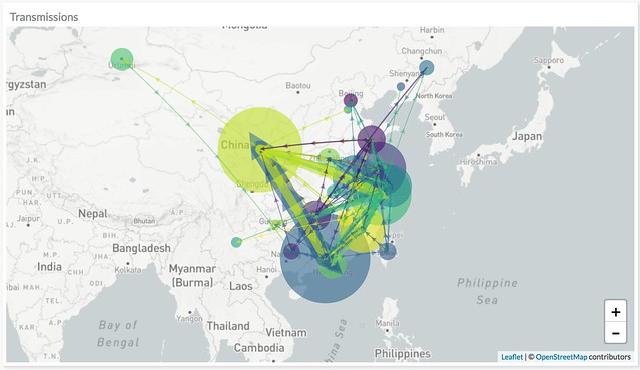Mapping global viral epidemics in real time
The intersection of datascience and epidemiology offers amazing opportunities to enhance quality of life for vast swathes of at-risk people. A new superpower conferred by the advent of cheap, rapid genetic sequencing. It might even help us avert the increasingly likely risk of the next global pandemic.
Another great example of the power of off-book, part-time projects, NextStrain was hatched after the two researchers responsible met at a conference and talked about the idea. The reseachers who developed it, Richard Neher of the University of Basel and Trevor Bedford of the Fred Hutchinson Cancer Research Center in Seattle both recently won the Open Science Prize for their contributions.
The tool maps how virii spread in real time, by tracking the minute differences in genetic fingerprint as transmission spreads. The tool is also vitally important as each transmission of a virus from host to host has the potential to mutate and tweak the virus, enhancing characteristics such as transmission, susceptibility, and even mortality. Effectively, the tool provides a tracking system to understand where viruses are mutating and how that is changing the way they spread.
While the tool cut its teeth on Ebola and Zika, and provided information that would have been helpful in understanding and dealing with the outbreaks in terms of tactical, on-the-ground effects (for example, Zika in Florida had one strain being spread locally but also having other strains brought in via other countries as we know from the genetic sequences and fingerprints of the virii sampled.).
The duo is already planning on extending the datasets to include epidemic viruses like MERS, noroviruses, and possibly even drug-resistant bacterial infections.
Interested in peeking at the codebase? The project is open-sourced and available on github with python and jupyter on the backend and a node front-end.
A tangential, but interesting #longread on the importance of tools like NextStrain in combatting epidemics is this great NYTimes Magazine article detailing the increased transmission rates of numerous mosquito-borne illnesses due to climate change and a lack of preparedness in the US around mosquito control (in stark contrast to here in Singapore, where dengue is endemic and effectively combatted via strict protocols.).
